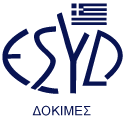 Testing
Cert. no 16
Testing
Cert. no 1612, Tsamadou street
GR-18531 Piraeus
T. +30 210 41 75 865
F. +30 210 41 72 895
info@tsakalidislabs.gr
www.tsakalidislabs.gr
G.E.MI. No: 54730809000
Listeria monocytogenes is a Gram positive bacteria, nonspore-forming, facultatively anaerobic, catalase-positive, oxidase- negative and expresses a beta hemolysin. It can grow in a wide range of temperatures 0-42oC, with optimum between 30 and 35 oC.
The genus Listeria includes seven different species (L. monocytogenes, L. ivanovii, L. innocua, L. welshimeri, L. seeligeri, L. grayi, and L. murrayi). Both L. ivanovii and L. monocytogenes are pathogenic in mice, but only L. monocytogenes is consistently associated with human illness.
The infection caused in humans is called Listeriosis. In pregnant women, it can often lead to abortion, premature birth or stillborn fetus. In sensitive population groups (young children and elderly) and in immunocompromised individuals, it usually appears as septicemia, meningitis and meningoencephalitis. It may also appear as endocarditis. Listeriosis in adults has a high mortality rate (up to 34%).
A great number of cases of foodborne listeriosis have been reported, and L. monocytogenes is now widely recognized as an important hazard in the food industry.
The European Union with its Regulation EC 2073/2005 sets microbiological criteria for L. monocytogenes in “ready to eat” food. Those foods has been classified in two categories depending on their ability to support or not, the growth of L. monocytogenes. In accordance with the above Regulation, the food business operator must be able to demonstrate, to the satisfaction of the competent authority, to which food category, with regards to the growth of L. monocytogenes, its product belongs. Also the food business operator may have to fix intermediate limits throughout the self-life of the product. The above procedure is part of the self-life study for “ready to eat” foods.
In Tsakalidis Analysis & Testing we can evaluate the food category that your product belongs to (support or not the growth of L. monocytogenes) and estimate the growth rate of the microorganism to this particular food product. The test includes inoculation of the food with a L. monocytogenes strain and evaluation of the microorganism’s behaviour throughout the self-life of the product (Challenge test). At the end of the test, we will deliver a comprehensive report for your product, which will help you, if necessary, to adjust your production process, meeting the legislative requirements.
In addition, it is well known that L. monocytogenes often exists in the production environment (e.g. equipment) and can contaminate “ready to eat” foods. The regular control of equipment and processing areas for the presence of L. monocytogenes is not only necessary but also mandatory (Regulation EC 2073/2005).
The qualified staff of Tsakalidis Analysis & Testing may visit your production facilities and take samples of surfaces (Swab test) in order to check the presence or not of L. monocytogenes. This will confirm that the cleaning and disinfecting procedures of your business are adequate or not.
| Parameter | Method | Accreditation |
| Detection of Listeria monocytogenes | ISO 11290-1/A1:2004 |
 |
| Detection of Listeria monocytogenes | VIDAS LMO2 |
 |
| Enumeration of Listeria monocytogenes | ISO 11290-2/A1:2004 |
 |
| Swab Test | ISO 18593:2004 | |
| Challenge test | Guidelines by EURL for Lm |


